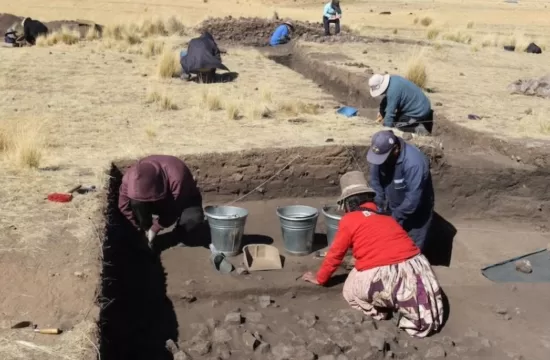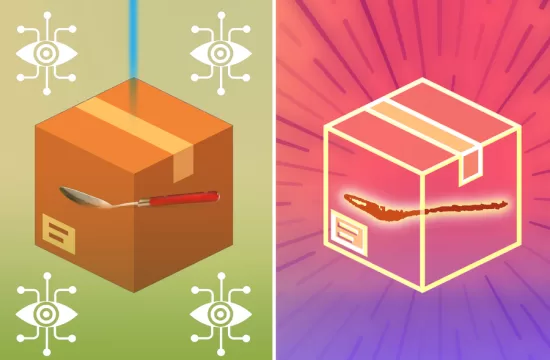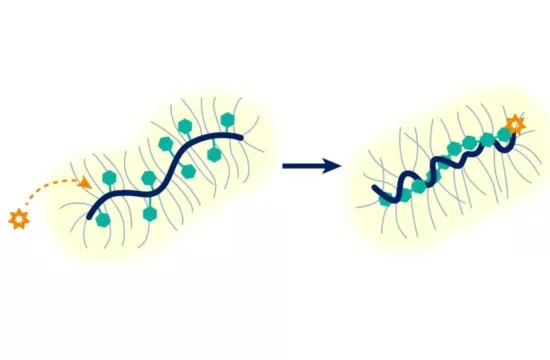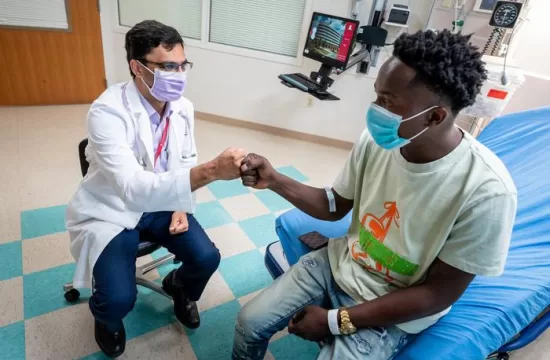Amid population growth, drought and increased urbanization, understanding food, energy and water availability is increasingly important
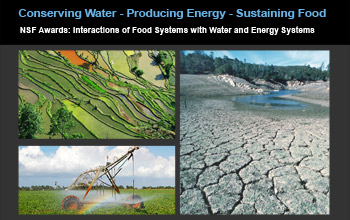
August 14, 2015. In a world where a growing number of people lack food, water and sources of energy, providing these resources has become a challenge.
To find new answers, the National Science Foundation (NSF) has funded 17 grants, totaling $1.2 million, to support workshops on the interactions of food, energy and water, or FEW. Additionally, $6.4 million will supplement existing grants, enabling scientists to conduct additional research.
Much of the globe’s human population depends on irrigation-supported agriculture, which in turn requires power to move water from place to place. But water has dwindled–in some places significantly. Changing land-use practices, increased urbanization, population growth and climate variability create stresses on water, energy and agricultural resources.
Addressing these issues requires novel ways of understanding the complexity of food production, energy requirements, and water availability and distribution. The FEW awards seek to explore solutions.
“Understanding interactions between humans and the environment represents a grand scientific challenge, especially in the case of the food-water-energy nexus,” says Roger Wakimoto, NSF assistant director for Geosciences. “This scientific challenge also encompasses critical policy and management questions for our future, making it a national priority.”
The grants are funded by NSF’s directorates for Biological Sciences; Computer & Information Science & Engineering; Education & Human Resources; Engineering; Geosciences; Mathematical & Physical Sciences; Social, Behavioral & Economic Sciences; and Office of Integrative Activities.
Basic research needed on links among food, energy, water
The FEW workshops will each involve 30-80 participants. The workshops are intended to facilitate partnerships among researchers in the natural sciences, physical sciences, social and behavioral sciences, and computing and engineering.
Their goal is to find innovative approaches to understanding food-energy-water systems, such as those found in the changing conditions of California, and in large international river systems. Researchers will also study technologies that can create resource efficiencies, reduce waste and enhance reuse.
“The need for fundamental engineering research in energy, water, biotechnology and smart systems, and in research projects focusing on sustainable water and energy use, will only grow as these systems become more interdependent,” says Pramod Khargonekar, NSF assistant director for Engineering.
Outgrowth of NSF sustainability investment
In 2010, NSF established the Science, Engineering and Education for Sustainability (SEES) investment area to establish a research foundation for the capabilities and technologies required to mitigate and adapt to the environmental changes that threaten Earth’s sustainability.
FEW emerged from SEES and earlier NSF investments, in recognition of the importance of understanding the interconnected and interdependent systems involving food, energy and water.


